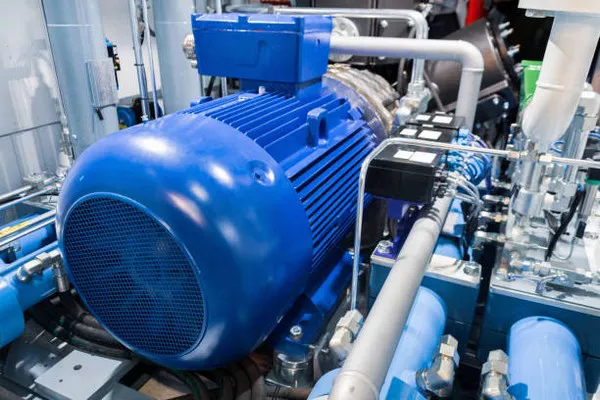In various industrial settings, compressors play a pivotal role in ensuring the smooth operation of machinery and processes. A malfunctioning compressor can lead to significant downtime, productivity losses, and costly repairs. Recognizing the early signs of a bad compressor is crucial for maintenance teams to address issues promptly and prevent extensive damage. In this article, we will explore the key indicators that signal a deteriorating compressor, emphasizing the importance of proactive maintenance.
Unusual Noise Levels
One of the most apparent signs of a failing compressor is the presence of unusual or excessive noise during its operation. Compressors are designed to operate with minimal noise, and any deviation from the norm can be indicative of internal issues. Common noises associated with a deteriorating compressor include knocking, banging, or high-pitched squealing. These noises may suggest problems such as worn-out bearings, damaged pistons, or misaligned components.
Maintenance Tip: Regularly monitor the noise levels during compressor operation and conduct thorough inspections if any unusual sounds are detected.
Reduced Performance and Efficiency
A decline in the performance and efficiency of a compressor is a clear indication that something is amiss. If the compressor takes longer to reach the desired pressure or struggles to maintain consistent output, it may be a sign of internal wear and tear. Reduced efficiency not only leads to increased energy consumption but also places additional stress on the compressor components, hastening their deterioration.
Maintenance Tip: Conduct routine performance assessments, including monitoring pressure levels, temperature, and cycle times, to identify any deviations from the normal operating parameters.
Excessive Vibrations
Excessive vibrations during compressor operation are red flags that should not be ignored. Vibrations can result from imbalances within the compressor components, misalignment, or worn-out parts. If left unaddressed, these vibrations can lead to further damage and compromise the overall stability of the compressor system.
Maintenance Tip: Regularly inspect the compressor for vibrations and invest in vibration analysis tools to identify the source and severity of the vibrations.
Elevated Operating Temperatures
Compressors generate heat during their operation, but a sudden increase in operating temperatures is cause for concern. Elevated temperatures can be indicative of issues such as insufficient lubrication, blocked cooling systems, or problems with the compression process. Continuous operation under high temperatures can lead to premature wear of vital components and a higher likelihood of system failure.
Maintenance Tip: Implement a regular thermal monitoring program to track and analyze the compressor’s operating temperatures. Address any abnormalities promptly to prevent overheating.
Leaks and Oil Stains
Compressor systems rely on lubrication to ensure smooth operation and reduce friction among moving parts. The presence of oil stains or leaks around the compressor is a sign that the lubrication system may be compromised. Leaking oil can lead to inadequate lubrication, resulting in increased friction, overheating, and potential damage to critical components.
Maintenance Tip: Regularly inspect the compressor for oil stains and leaks, paying close attention to gaskets, seals, and connections. Address any leaks promptly and replenish oil levels as needed.
Irregular Cycling
A compressor should cycle on and off in a controlled manner to maintain the desired pressure levels. Irregular cycling, such as rapid or frequent starts and stops, may indicate issues with the pressure switch, unloader valve, or other control components. Irregular cycling not only reduces the overall efficiency of the compressor but also accelerates wear on essential parts.
Maintenance Tip: Monitor the cycling patterns of the compressor and investigate any irregularities. Regularly inspect and maintain control components to ensure proper functionality.
Unpleasant Odors
Unpleasant or unusual odors emanating from the compressor system can be indicative of various problems. Burning smells may suggest overheating or electrical issues, while a strong odor of oil could indicate a lubrication system malfunction. Identifying and addressing these odors promptly is crucial to prevent further damage and potential safety hazards.
Maintenance Tip: Investigate any unusual odors promptly and conduct a thorough inspection of the compressor system to identify the source of the smell. Address issues promptly to prevent safety risks.
See Also What Is Scroll Type Compressor? A Comprehensive Overview
Conclusion
A proactive approach to compressor maintenance is essential for ensuring the reliability and longevity of industrial equipment. By recognizing the early signs of a failing compressor, maintenance teams can address issues before they escalate, minimizing downtime and preventing costly repairs. Regular inspections, monitoring of performance parameters, and timely interventions are key elements of an effective maintenance strategy, helping industrial facilities maintain optimal compressor performance and operational efficiency.

